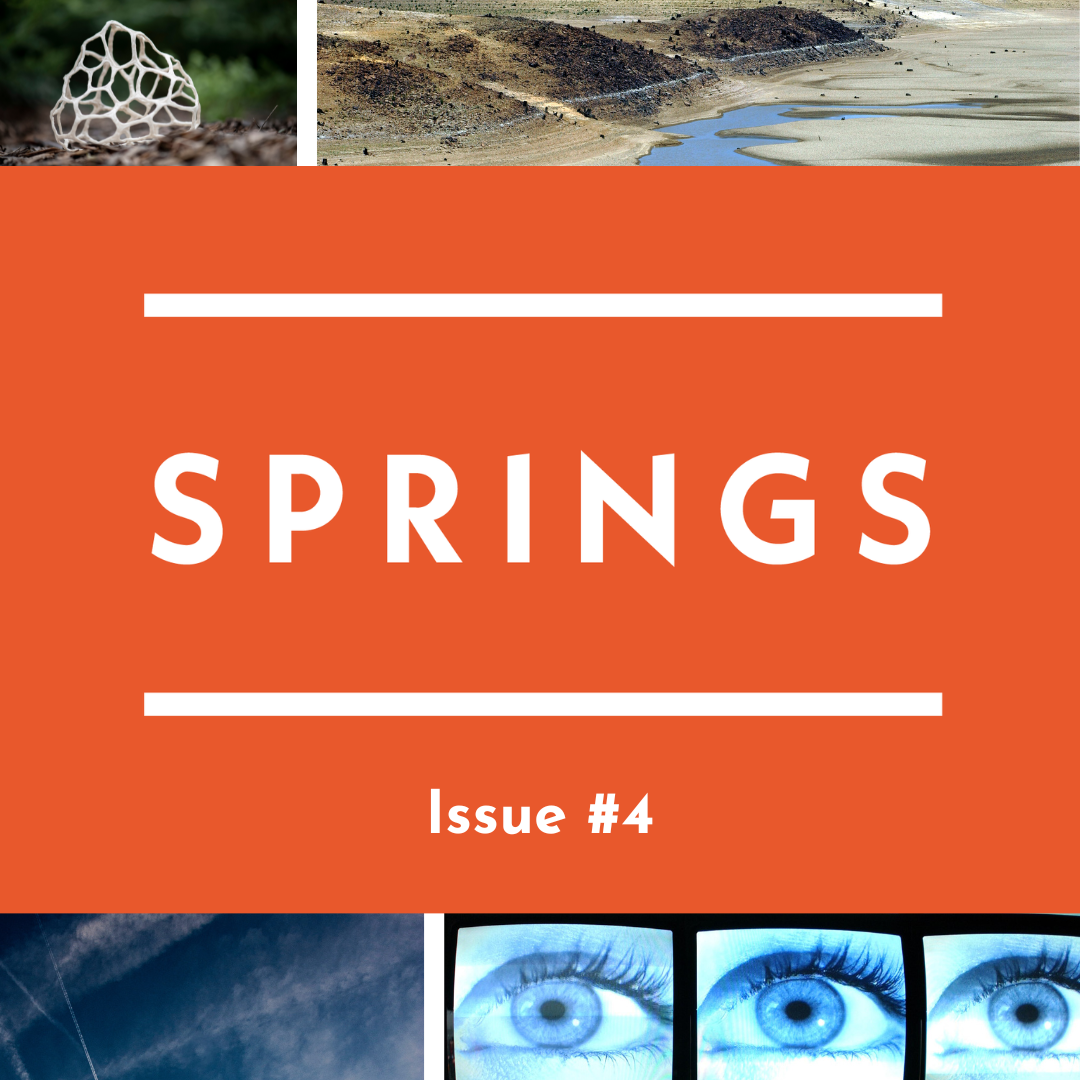Fourth Issue of Springs: The Rachel Carson Center Review
31.10.2023
The RCC is delighted to bring you the fourth issue of Springs: The Rachel Carson Center Review, our open-access online publication surveying the interrelationship between social and environmental changes.
In this edition, our authors’ research and insights lead us across four continents, from the streets of downtown Los Angeles to the heart of the Ecuadorian Amazon, into the woodlands of southwest Nigeria, and along Ukraine’s Dnipro river.
Historian Frank Zelko’s “In the Teeth of History” yanks the root causes of tooth loss in industrial societies from the long history of dental ecology. By examining the evolution of starch and refined sugar consumption as well as the impacts of the fertilizer industry and the introduction of water fluoridation practices, he outlines the ways in which industrial societies have attempted to address their compounding, societal caries.
When legal scholar Jens Kersten speaks in “Ecological Constitutionalism,” it is to emphatically implore the liberal and democratic states of the Global North to transform their social and constitutional orders and embrace their collective responsibility for the sustained and future health of the planet.
With “Adventures in Mockstitutions,” writer and artist Jenny Price pulls us through the looking glass into the unique world of alt and mockstitution projects that work to mimic and distort the practices of established organizations. While we’re there, she encourages us to reimagine our understanding of major institutions’ environmental impacts.
Then, in “Not Every Kid Is WEIRD,” one of our editors, Brady Fauth, sits down with anthropologist and principal investigator of the new Volkswagen Freigeist Grant project, LearningNatures, Francesca Mezzenzana, to discuss her developing research into children’s human–nonhuman relationships across cultures.
The Dnipro river, a major focus of Soviet industrialization and collectivization efforts over the last one hundred years, is the subject of historian Paul Josephson’s “Rivers as Battlefields.” As he explores the complex history of reservoir and dam projects along the Dnipro in Ukraine, he emphasizes the human suffering and environmental devastation that has resulted from the destruction of the Kakhovka Dam in 2023.
Professor of environment and sustainability Irus Braverman holds under the microscope the ongoing convergences among technological innovation, nature conservation, and the Israeli military by centering on a griffon vulture breeding project in “Mother Drone, Mother Nature.”
And finally, in “Home, Roots, Cosmos,” literary scholar Serenella Iovino writes about Italo Calvino’s personal history in the Ligurian town of Sanremo and its influence on his 1957 novel, The Baron in the Trees, uncovering the author’s unique political ecology and asking us not just to consider the literary works we read as existing alongside their landscapes, but within them.
Architect Joseph Adedeji encourages us to experience the power of built heritage as a cultural agent and a symbol of hope for a harmonious coexistence of society and the nonhuman world in his photo essay “Yoruba Architectural Sites in Nigeria.”
As we digest the marvelous images of cultural anthropologist Amelia Fiske and illustrator Jonas Fischer’s “Crude Encounters,” we are asked to consider the ecological and psychological impacts of oil extraction on the Ecuadorian Amazon.
Springs also continues to bring together writing from other RCC publications. Its archive curates articles that were published in the open-access online and print journal RCC Perspectives (2010–20), in the blog Seeing the Woods (2012–21), and in the peer-reviewed online journal Arcadia: Explorations in Environmental History.
Downloads
- Springs_Issue4 (66 KByte)


